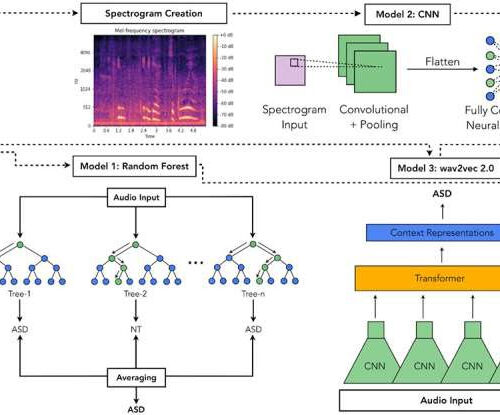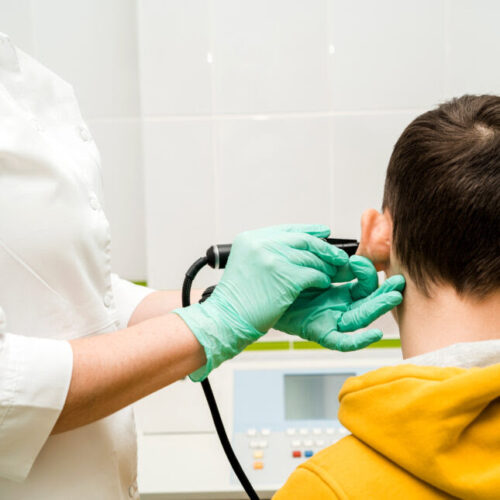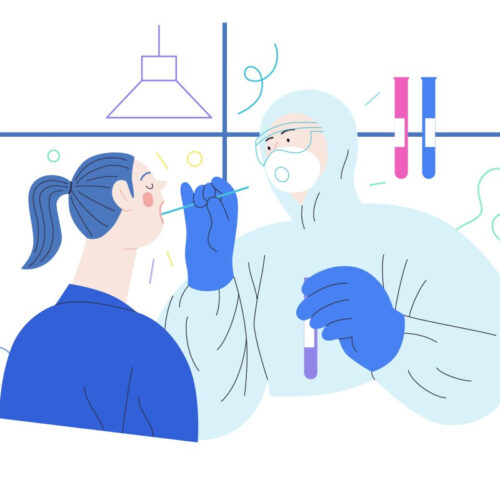by University of California – San Diego Prototype of the blood pressure monitoring clip. The user presses on the clip and a custom smartphone app guides the user on how hard and long to press during the measurement. Credit: Digital Health Lab / UC San Diego Engineers at the University of California San Diego have developed...
Tag: <span>Smartphone</span>
Transforming a Tablet or Smartphone into a Fluorescence Microscope
Reviewed by Skyla Baily The journal Scientific Reports has published a proof-of-principle study that presents a device that can transform a tablet or smartphone into a fluorescence microscope for no more than $50. Image Credit: Florian Hipper/Shutterstock.com The authors recommend that the device, which is called a glowscope, can be employed to image tissue, cells, and organisms...
Detecting anemia earlier in children using a smartphone
by University College London Credit: Dr Christabel Enweronu-Laryea, University of Ghana. Researchers at UCL and University of Ghana have successfully predicted whether children have anemia using only a set of smartphone images. The study, published in PLOS ONE, brought together researchers and clinicians at UCL Engineering, UCLH and Korle Bu Teaching Hospital, Ghana, to investigate a...
Smartphone and Cheap Earbuds for Accessible Newborn Hearing Test
NOVEMBER 8TH, 2022 CONN HASTINGS ENT, PEDIATRICS, TELEMEDICINE Researchers at the University of Washington have developed a low-cost hearing test for newborns. Traditionally, the equipment for such testing is quite expensive. As newborns cannot let us know if they can hear something, the test is based on creating a noise within the ear canal and then...
Smartphone game data could facilitate earlier diagnosis of autism spectrum disorder and improve treatment
by Katharine Miller, Stanford University Overview of audio-based AI detection pipeline. First, the educational video game Guess What? crowdsources the recording of videos of NT children and children with ASD from consenting participants. Audio of children’s speech is manually spliced from the videos and 3 models are trained on this audio data. The first is a...
New smartphone clip-on can detect Zika virus in blood samples
by Ananya Sen, University of Illinois at Urbana-Champaign From left: Brian Cunningham, Amanda Bacon, Aaron Jankelow, Katherine Koprowski, Han Keun Lee, Weijing Wang, Robert Stavins, and Enrique Valera. Bacon and Koprowski are holding the instrument and the cartridge, respectively. Credit: Julia Pollack As seen with the COVID-19 pandemic, detection methods that are rapid, simple, accurate, and...
Scientists design a cheap device that can detect ear problems with the help of a smartphone
By Edward ChenJuly 8, 2022 ADOBE On a chilly October evening a decade ago, physician Michael Cohen arrived at Boston’s Logan International Airport lugging a hefty contraption, built like a tiny tank, that immediately drew the attention of airport security officers. It was a device to detect ear problems, and he and a colleague were...
Phase-imaging microscope in a smartphone? Possible thanks to metasurfaces
Modern medical diagnostics equipment is very expensive. For example, phase-imaging microscopes are able to make invisible aspects of a biological cell visible, finding early clues about a disease, but they are also very big and cost thousands of dollars. Now, however, scientists at the University of Melbourne managed to miniaturize this technology so much that in the...
Cheap, quick, smartphone-based COVID testing kit as accurate as PCR
By Rich Haridy January 30, 2022 A new smartphone-based COVID-19 detection system can deliver results in less than half an hour and is as accurate as PCR testing Depositphotos US researchers have developed an innovative smartphone-based kit that can test saliva samples for the presence of SARS-CoV-2 and influenza viruses. Early studies have found the...
3D-printed medicine – the new technique uses a smartphone
Everyone has a somewhat unique body because we are all different humans. Also, our medical conditions are not always identical, regardless of the diagnosis. So how can we expect the same treatment to work equally effectively for everyone? Personalized medicines are a huge goal for medical science. But it is very difficult to achieve. Now...








